We are thrilled to announce that Rafael Kouto began an exciting new residency at G.A.S. Foundation, supported by the Swiss Arts Council, Pro Helvetia. A multidisciplinary creator with a focus on fashion, design, research, and materiality, Rafael brings a wealth of experience and a unique perspective to our community. His diverse itinerary will take place across various locations, including G.A.S. Lagos, and G.A.S. Farm House in Ikise, after which he will go on to Ibadan. During this period, Rafael aims to engage with local artisans working with textile techniques such as embroidery, dyeing, printmaking, weaving, and more, with the goal of exploring local methodologies to circular fashion; specifically how artists and designers engage with contemporary West African material culture, decolonization in fashion, and traditional crafts and rituals linked to the Yoruba community.
Rafael's research builds upon groundwork initiated in Ghana at the beginning of the year, where he investigated the intersections of sustainability, fashion, and traditional craftsmanship. As he sets out on this residency, Rafael plans to reflect on his experiences and translate his insights into tangible outputs, including samples, sketches, and experimental works using various techniques. Throughout his residency, Rafael aims to deepen his understanding of West African culture and actively contribute to the local creative community. He envisions presenting the outcomes of his residency through talks and potentially organizing upcycling workshops within local communities.
What is the current focus of your creative practice?
In 2017 I founded the avant-garde upcycling and community couture brand, of which I lead the creative direction, the development of strategies, collaborations and engaging projects for the promotion of upcycling and sustainability through the use of textile waste, dead stock and other materials in the creative and production process. The promotion of upcycling takes place through workshops in collaboration with various institutions and through teaching as an associate professor in Fashion Design at the IUAV in Venice. I collaborated as a consultant at the Education and Learning Office at Fondazione ITS - International Talent Support in Trieste (IT) for the creation and planning of the activities, courses, workshops and special projects with past finalists and local artisans.
During the residencies at TaDA in Arbon, Istituto Svizzero in Milan, Lottozero in Prato and VU.CH in Lausanne I developed participatory projects, installations and research related to sustainability, upcycling, fashion and textile history engaging with local communities.
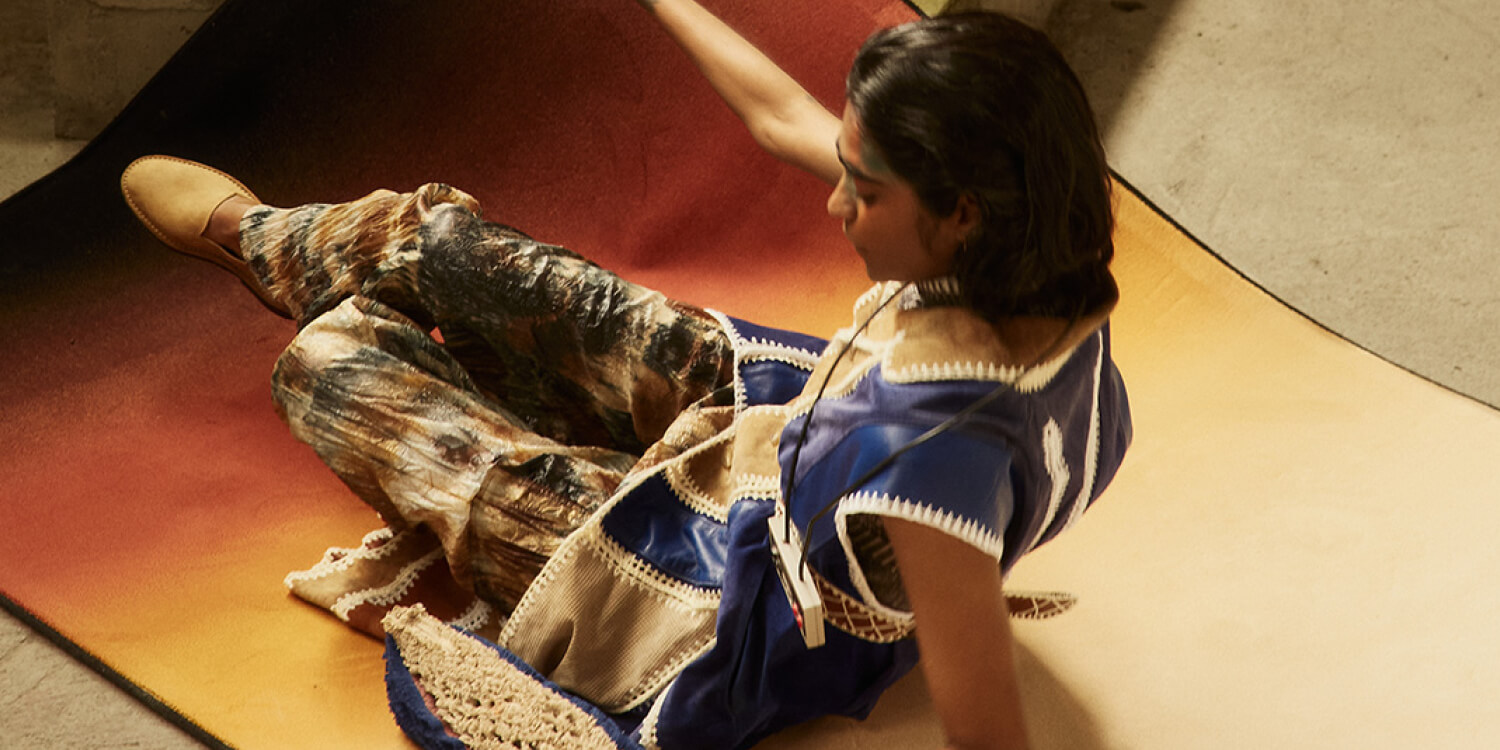
Costume by Rafael Kouto. Photographed by Flavio Leone
What drew you to apply for this residency and how do you think it will inform your wider practice?
Since the beginning of my practice, I have always had a strong interest in sharing the upcycling process to engage and provide empowerment tools to the customers and the public. The experiences through the upcycling workshops and as an associate professor in fashion design at the IUAV of Venice allowed me to understand the potential of craft, ritual and the performativity of the creative act. I am considering the potential of developing the research in collaboration with an institution or a university into a practice-based Ph.D.
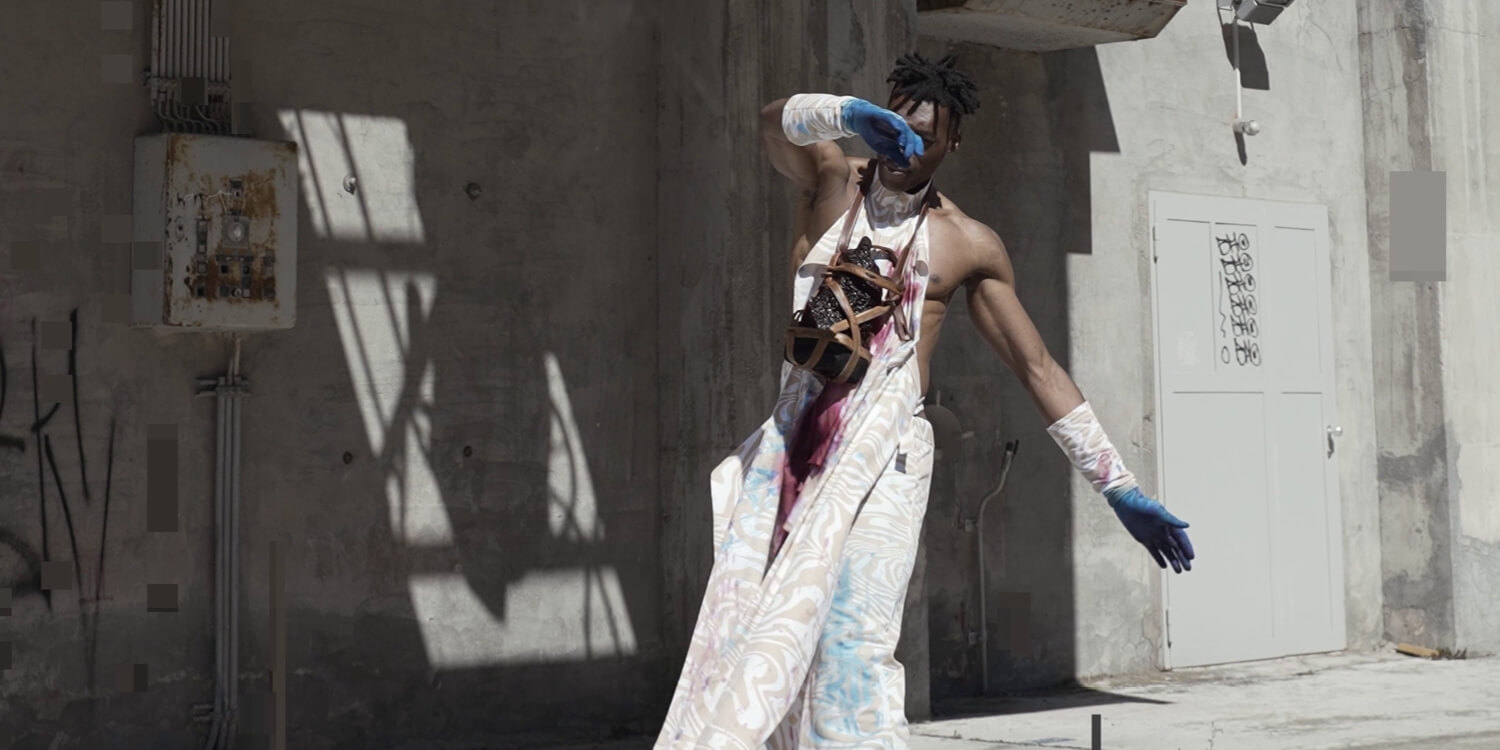
Costume by Rafael Kouto. Photographed by Emidio Battipaglia
Can you give us an insight into how you hope to use the opportunity?
I am planning to meet artists and designers working with upcycling to better understand the West African material culture, to research de-colonisation in fashion and crafts and rituals in the Yoruba community.
RESIDENCY ARCHIVE
EVENT: Circular Heroes I
Event Date: 8th March 2024
The first iteration of the Circular Heroes workshop was hosted by Rafael Kouto in collaboration with Peter D. Abayomi of the Eran Jije Project, whose work activates Isale-Akoka, Bariga communities through music, dance, and environmental awareness. The workshop took place at the Eran Jije Studio on the edge of the water (eti-omi), and aimed to visualize waste objects as "activated objects". Thematically it took inspiration from Rafael's own research which speculates on the metaphysical presence of waste material whose life cycles have not yet achieved closure. The making of a new life symbolically deactivates the waste objects. The session engaged 15 young people from one of Lagos' most ingenious waterside communities, characterised by adjacent landfills that provide inhabitants with building materials and income streams through recycling. The exercise served as a prequel to a second Circular Heroes workshop held at the G.A.S. Lagos residency space, attended by fashion designers, visual artists, photographers, climate activists and resource reclamation entrepreneurs.
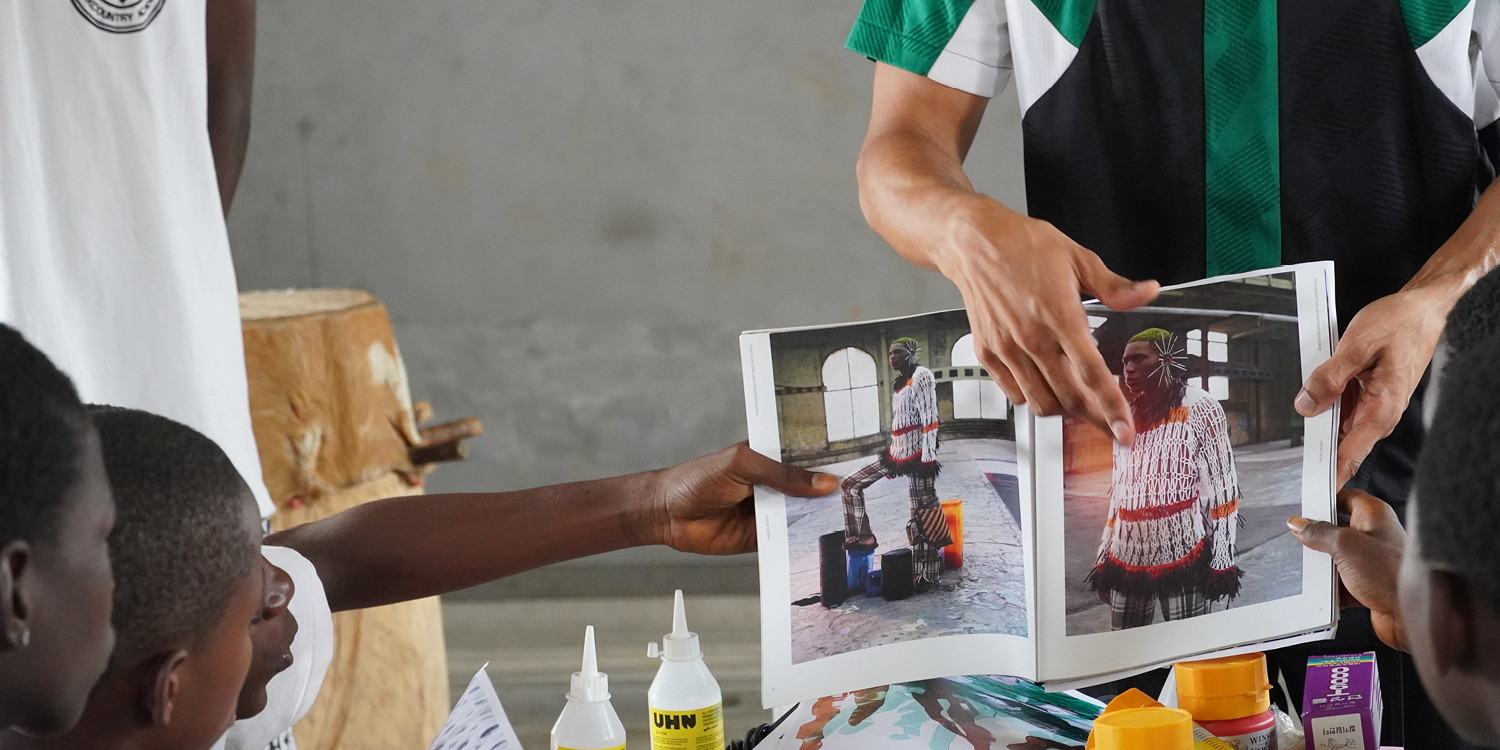 Workshop participants identify the upcycled materials in finished fashion products.
Workshop participants identify the upcycled materials in finished fashion products.
EVENT: Circular Heroes II
Event Date: 15th March 2024
Rafael Kouto invited members of the Lagos creative community to attend Circular Heroes, an upcycling workshop at G.A.S. Lagos. The opportunity was open to fashion, textile, and other crafts practitioners. Participants will receive instructions on methods such as embroidery, applique, and weaving, and experimentally apply them to pre-made printed textiles. This workshop spun off from an earlier iteration which was executed in collaboration with Peter D. Abayomi, whose initiative, the Eran Jije Project, addresses waste management and environmental sustainability issues within the community.
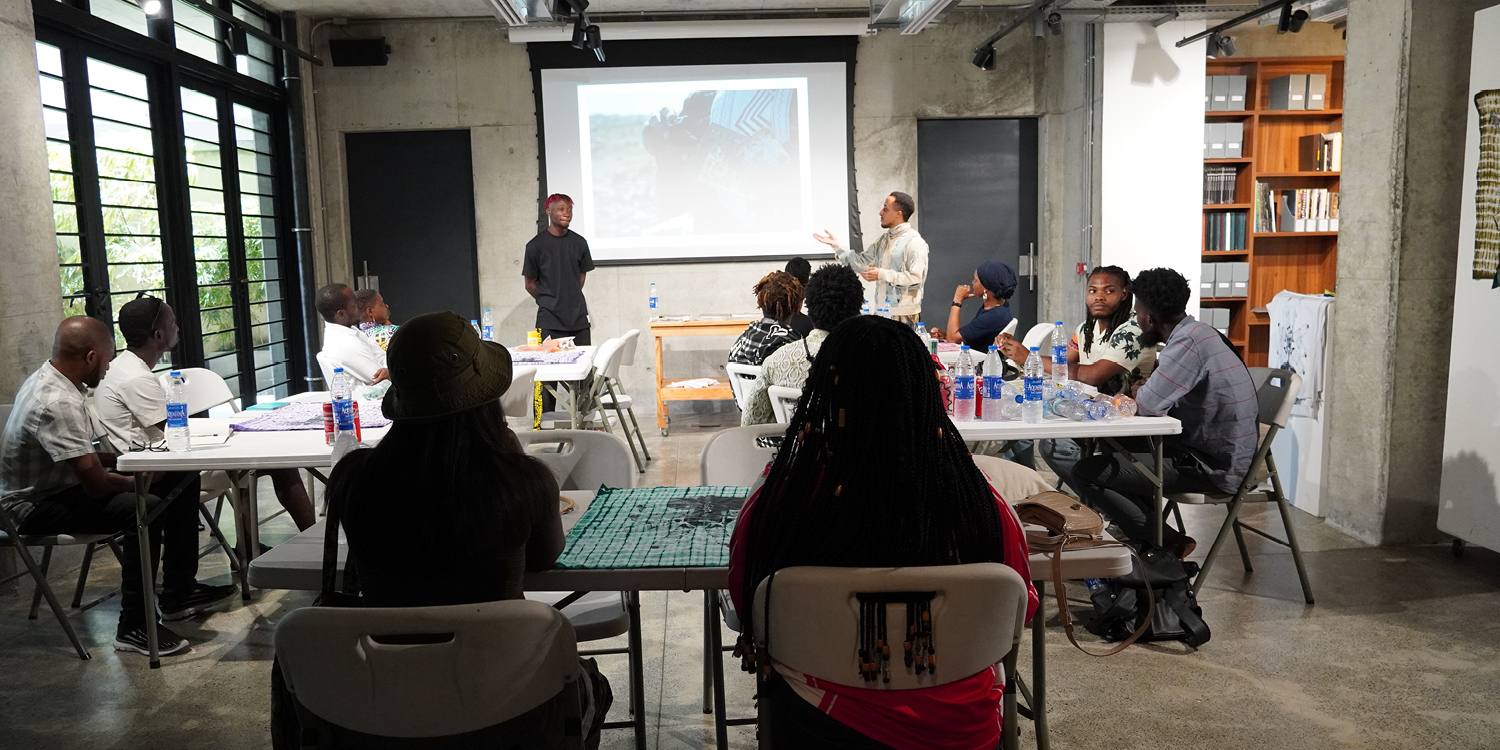
Peter D. Abayomi and Rafael Kouto open the Circular Heroes workshop at G.A.S. Foundation.
About RAFAEL KOUTO
RAFAEL KOUTO, who lives and works between Lausanne, Zürich and Venice, is Swiss with Togolese origins. He is a creative director, fashion & textile designer, as well as a researcher in upcycling methods, and sustainable and engaging strategies with a particular focus on open source and craftsmanship. He studied Fashion Design at FHNW-HGK in Basel, earning an MA in Fashion Matters from the Sandberg Institut in Amsterdam. He has had various work experiences at Alexander McQueen, Maison Martin Margiela, Carven and Ethical Fashion Initiative.
In 2017 he founded the avant-garde upcycling couture brand of the same name, of which he leads the creative direction, the development of strategies, collaborations and engaging projects for the promotion of upcycling and sustainability through the use of textile waste, dead stock and others materials in the creative and production process. The promotion of upcycling takes place through workshops in collaboration with various institutions and through teaching.
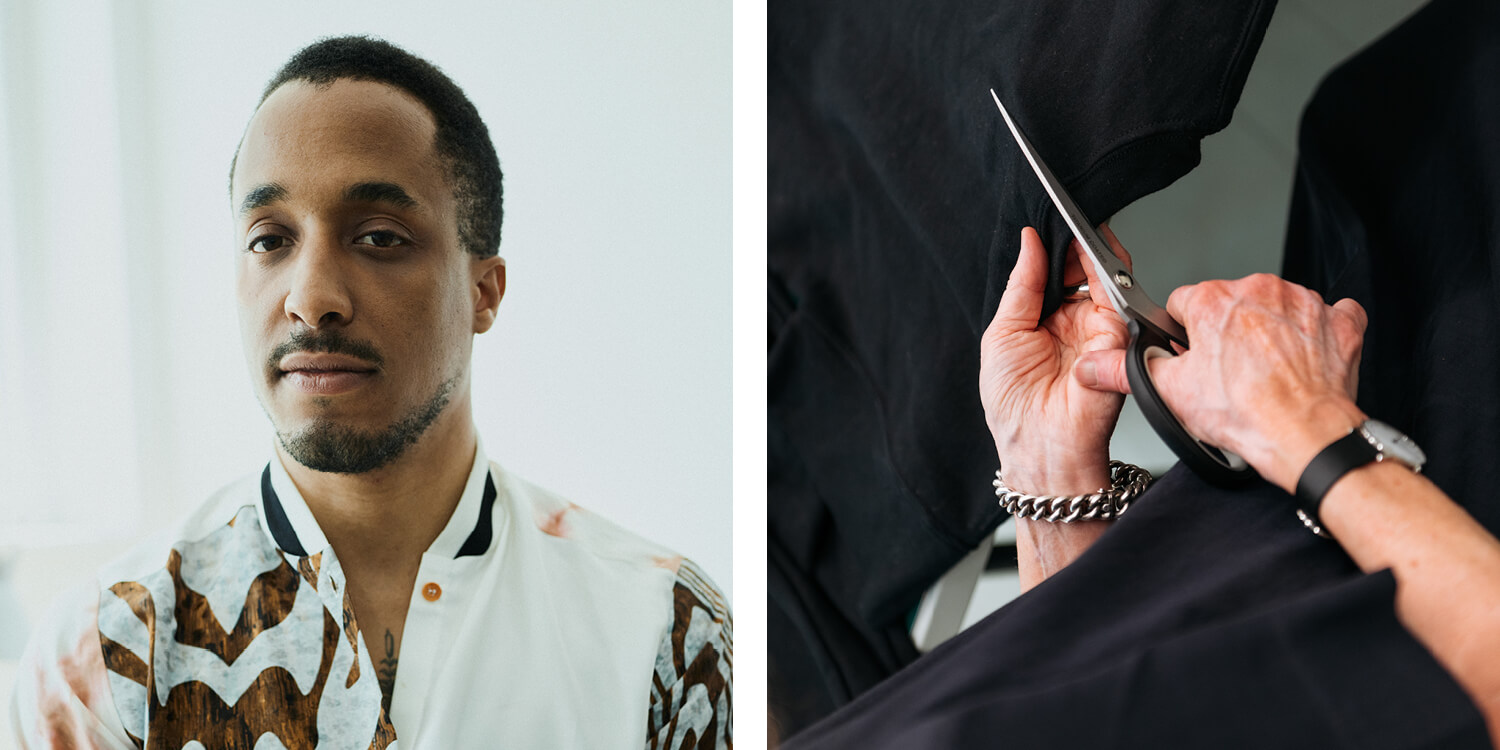
Rafael's residency is generously supported by the Swiss Arts Council, Pro Helvetia.
